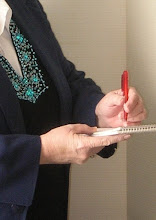The 2010 Locksmith Services law (House Bill 301 and Senate Bill 658) died in committee on April 30, the last day of session. While Florida locksmiths are safe from the burdensome regulations for another year, it was closer to passing this year than last.
The bills passed favorably through 2 of the 5 Senate committees and 2 of the 4 House committees. By mid-April, with only 2 weeks left in the session, the bills looked all but dead. Then former Associated Locksmiths Of America (ALOA) President Ken Kupferman sent out an urgent email asking Florida locksmiths to call House Speaker Larry Cretual and Majority Leader Adam Hasner and “ask them to bring our bill to the House Floor for a vote.”
What was going on? Had something been missed? How could asking Cretual and Hasner to bring the bill to the House floor for a vote have helped when it still had so far to go in the Senate? What would that have accomplished?
Plenty, as it turns out!
According to Jaryn Emhof, Communications Director for Senate President Jeff Atwater, “when a bill in the House and the Senate is identical (as was the case with HB 301 and SB 658) , and, if a deal has been made between the sponsors, should the bill pass one Chamber, it can automatically be passed in the other Chamber.”
Did Rep. Thomas Anderson (R) and Senator Victor Crist (R), (both sponsors in 2009 and 2010), reach an agreement either before or during the 2010 session? It’s possible. If it had been brought to the floor for a vote, in all likelihood, it would have passed, sidestepping the 5 remaining committee hearings.
So that may be the reason for Kupferman’s final urgent emails. It’s also a good reason why those who oppose legislation, any legislation, need to travel to Tallahassee to speak at committee hearings at the beginning of March to stop any unwanted legislation.
I did take Kupferman’s email seriously and called and sent faxes to Cretual and Hasner, but not in support of the bill. This course of action, however, was frustrating, and, I believe, not very effective at this point in the process. When I asked legislative staff answering the phones how they verify that those calling in to express their opinions are Florida residents, they said there was no way they could do that. Since ALOA has about 4,000 to 5,000 nationwide members, it was very disconcerning especially knowing what I already knew about their approach to this legislation.
Knowing how the system works empowers constituents
So how does a bill get started? Generally, interested Floridians approach their representatives in the Senate and the House to suggest a new regulation. Things usually begin happening far in advance of the March to April 60-day session when legislators actually vote on bills.
Bills are filed in November and then referred to councils or committees for discussion. November through March is the best time for constituents to visit their representatives in their district offices and voice their opinion about pending legislation. The second best opportunity for the opposition to voice their opinions is when the committee meetings begin in March. Until then, it’s possible that Representatives and Senators only know what the proponents of the bill have said.
Proponents are usually better organized and funded and are able to hire lobbyists. They and their lobbyist have already been visiting legislators in their districts offices and at campaign events. They even hold events packed with supporters of the bill and invite legislators to attend “to hear what the average locksmith thinks about the bill.”
If no one speaks against the bill at the committee meetings in Tallahassee, as happened in this case, then the bills are favorably passed by majority vote on to the next committee to await the next hearing and vote.
So what did the proponents of the bill have to say about Florida locksmiths and the Florida locksmith industry? You’d be surprised. I know I was.
My next post will reveal how the proponents of the bill answered the 14 questions of the “Sunrise Questionnaire for Groups Seeking New Regulation.” Exactly who are these proponents? How accurate was their assessment of the locksmith industry in Florida or did they over-inflate the problems and their representation of the industry? Did they mischaracterize Florida locksmiths or were they spot on? More importantly, what did they neglect to mention?
The next post is a long one because not only are the questions and answers listed, but interviews with legislative staff and investigative research has been provided as to the validity of the proponents’ claims.
If you haven’t signed up for this blog by email, please do so now. Watch for this next post, print it out and take time to read it. Then be ready next November to take a stand should a new bill be filed. Visit your representatives when they hold campaign events this summer or in their district offices – it’s a much shorter trip than driving to Tallahassee.
Friday, May 7, 2010
Florida locksmith services law dies in House and Senate committees
Labels:
ALOA,
Anderson,
Crist,
Kupferman,
laws,
legislation,
locksmith,
Senate,
Tallahassee
Subscribe to:
Post Comments (Atom)


No comments:
Post a Comment